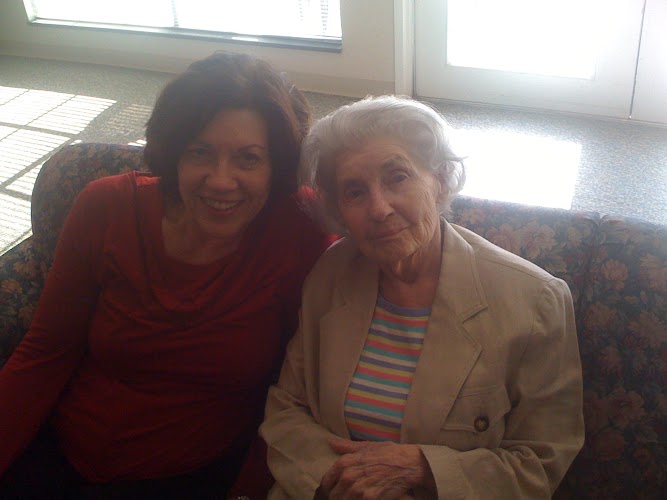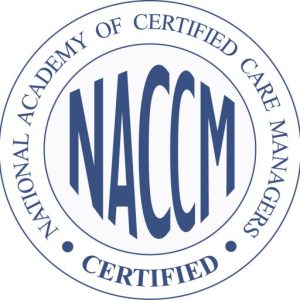AGING LIFE CARE® WITH ELDER CARE MANAGEMENT, LLC
If you are looking for caring and professional oversight of your own or a loved one’s comfort, safety and health, you have come to the right place. Elder Care Management, LLC provides Aging Life Care® enriched by over twenty years of experience in the field with the City of Stamford and Waveny LifeCare Network (New Canaan), and throughout Fairfield County and nearby New York.

Our commitment to enhancing quality of life under a variety of circumstances, along with our wide-ranging, long-standing knowledge of local institutions and professionals ensures the best care possible for our clients. Available for short and longer-term solutions, our services will bring you and your family the peace of mind only extensive experience and impeccable credentials can provide.
Below, we have listed some of the most common services we provide. Please see ABOUT for more information about Elder Care Management, LLC, professional credentials, and more; or feel free to call 203-822-1350 for further information.
Aging Life Care® Services and Support
- Assessment
- Care Planning
- Consultation
- Consultation with Conservators, Certified Public Accountants, and other professionals
- Referrals
- Advocacy
- Long-Distance Support and Oversight
- Knowledge of Local Assisted-Living Facilities and Nursing Homes
- Coordination of Medical Care
- Coordination of Caregivers
- Aging Life Care/Aging in Place/Aging Parents
- Alzheimer’s
- Dementia
- Geriatric/Senior/Aging Care Management
- Placement Option Decisions (including how to stay at home)
- Oversight–Long- and Short-Term
- Navigation, Client Advocacy, and Filing of Insurance, including Long-Term Care Insurance and possible Post-Hospitalization Home Care Benefits
- Home Safety and Fall-Prevention Strategies
More Ways We Can Help: The Eight Knowledge Areas of Professional Aging Life Care®:

Cost Savings:
An Aging Life Care Professional® can help families realize cost savings, but the biggest advantage is the emotional peace of mind knowing that a relative or loved one is being cared for with the most appropriate level of care. According to the Aging Life Care Associaton®, some of the areas that have resulted in savings we often see are:
-Savings in care costs via recommending live-in care, when appropriate, in place of more expensive shift care.
-Understanding today’s medical system can save clients money while ensuring the appropriate level of care.
-Making the most of insurance, including long term care insurance and home care benefits after hospital admission visits.
Addressing Self-Neglect:
Survey: Self-Neglect of Elderly is Growing
Self-neglect among the elderly is a growing problem that commonly goes unreported, according to a survey of elder care experts issued on September 25th by the National Association of Professional Geriatric Care Managers.
The survey finds that self-neglect among seniors is the most common form of non-financial elderly abuse/neglect encountered by care managers, far outpacing encounters with physical or sexual abuse or neglect by others.
The National Adult Protective Services Association defines self-neglect as: “an adult’s inability, due to physical or mental impairment or diminished capacity, to perform essential self-care.” They make it clear that lifestyle choices or living arrangements alone do not prove self-neglect. According to the NAPSA, in many communities self-neglect accounts for more than 50% of adult protective service referrals and caseloads.
“Elderly self-neglect is a hidden problem in our community,” said Melissa Mayernik, “we as care managers want families and others to know the warning signs and to be on the lookout to safeguard their elderly loved ones and neighbors.”
Key Findings of the NAPGCM Survey of geriatric care managers surveyed reveal that:
* 92% of care managers said that elderly self-neglect was a significant and growing problem in their community.
* 94% of care managers surveyed reported that elderly self-neglect is a largely hidden problem, with cases frequently going unreported.
The warning signs of elderly self-neglect most often cited are:
1. Poor personal hygiene/not bathing or taking care of hair or nails.
2. Poor medication management or refusing to take medications.
3. Signs of dehydration, malnutrition, or other unattended health conditions.
4. Unsanitary or very unclean living quarters.
5. Unpaid bills, bounced checks, utility cut-offs.
6. Lack of adequate food in house or signs of weight loss.
In my professional experience, I have encountered seniors unable to take their medications, pill boxes full of pills — and others empty much too soon; a lack of fresh food in the house, as well as very old leftovers and perishable food sitting out on counters. A couple whose daughter had contacted me included a husband whose dementia had affected his judgement and left him unable to realize how much help he needed. He left his immobile wife in her bed and was unable to effectively clean her. Because he thought he needed to save money, he only changed her incontinent product once a day. Both persons were very thin at this point.
Yet another client was losing a great deal of weight, losing her appetite completely, and not keeping any medical appointments. Over time, she in effect became blind through self-neglect, since her cataracts could have been removed had she sought treatment.
What can be done? The National Center on Elder Care Abuse provides a listing of resources in every state at:
http://www.ncea.aoa.gov/Stop_Abuse/Get_Help/State/index.aspx
In some states (including Connecticut), you can also call the local Agency on Aging, or the Department of Protective Services.
Elder Care Management, LLC can help: please call 203-822-1350.
(For more information, please click here: ABOUT.)
LINKS (click on titles):
How Fitness Helps Foster Community And Fight Loneliness Among Seniors (Elder Care Management, LLC director quoted in Forbes)
The Value of Working with an Aging Life Care Professional®
Private Care Management on NPR
What to Look For in an Assisted Living Facility
